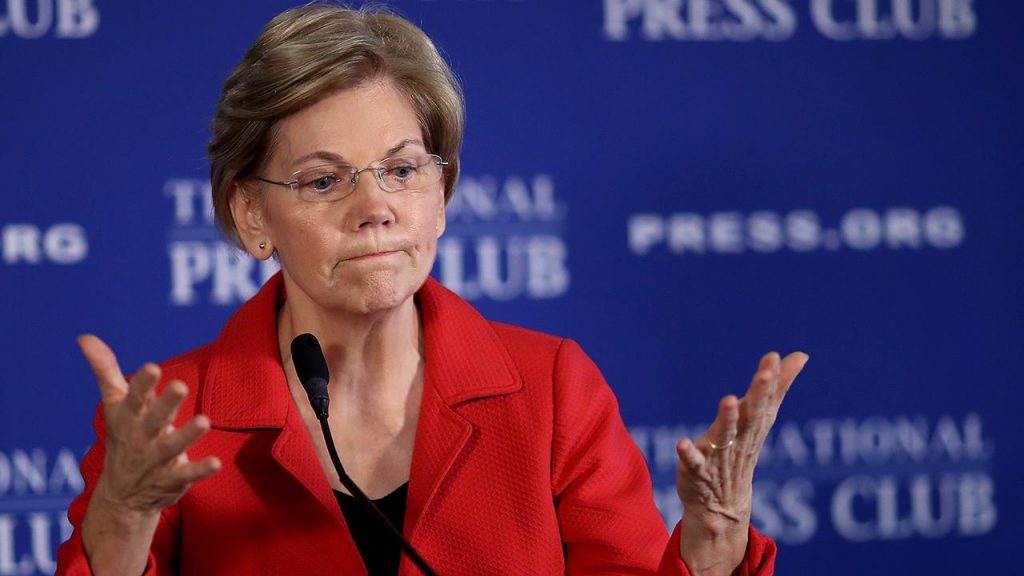President Donald Trump has continually alleged that Massachusetts Sen. Elizabeth Warren falsely claimed Cherokee heritage to advance her political career. However, on Monday, Warren released her DNA test which, according to Carlos Bustamente, a professor of genetics at Stanford University, found “five segments of Native American ancestry.”
However, this has sparked controversy about Warren’s ancestry. According to the Boston Globe, Warren’s ancestry would suggest that she is between “1/64th and 1/1,024th Native American.” The Cherokee Nation Secretary of State Chuck Hoskin Jr. remarked that “a DNA test to lay claim to any connection to the Cherokee Nation or any tribal nation, even vaguely, is inappropriate and wrong.”
The debate about Warren’s genetic heritage may spill over into identity politics in general. Whether or not Warren’s DNA test is legitimate to establish her identity as Native American, the argument that such insignificant blood quantum levels cannot establish her Native American heritage should raise questions about how to understand clearer biological grounds for gender identification.
SEN. WARREN CLAIM TO NATIVE AMERICAN HERITAGE
The controversial claim by Warren dates back to April 2012, when it was first reported by the Boston Herald. It reported that Harvard “prominently touted Warren’s Native American background, however, in an effort to bolster their diversity hiring record,” and that The Crimson, Harvard’s student newspaper, reported Warren as “the first woman with a minority background to be tenured.” The Boston Globe continued coverage, digging deeper into her college applications.
Warren’s campaign claimed, “Warren’s grandparents on her mother’s side had Native American lineage,” and Warren claimed in 2012 to NPR, “I am very proud [of my heritage].”
DNA FAUX PAS AND CHANGING IDENTITY POLITICS
In 2016, then-presumptive Republican presidential nominee Donald Trump referred to Warren as Pocahontas, a reference to a well-known Powhatan Native American. The allegations against Warren had continued to escalate until July 2018, when President Trump said, “I will give you a million dollars, to your favorite charity, paid for by Trump, if you take the test and it shows you’re an Indian.”
After Warren released her DNA test, finding out that she is between 1/64th and 1/1,024th Native American, she called President Trump to donate the $1 million to National Indigenous Women’s Resource Center, a nonprofit working to protect Native women from violence. President Trump has denied ever claiming he would pay and wants to test her personally.
However, in response, the Cherokee nation has called the DNA test “inappropriate and wrong.” There are two reasons. First, the DNA test is insufficient to determine which tribe she is descended from because most tribes have declined to participate in recent genetic studies. Her DNA was compared against DNA samples from Mexico, Peru and Colombia—not Cherokee samples.
Second, Hoskin claims that Warren’s DNA test “do not meet the existing legal standards set by the tribal nations to determine citizenship.” This would include 1/4th, 1/16th blood quantum or proven descent, depending upon tribe.
Despite whether Warren’s DNA test is legitimate, having not been compared to Cherokee DNA, the argument that her blood quantum is not high enough to be considered Native American raises questions about identity politics.
IMPLICATIONS FOR EVIDENTIAL AND BIOLOGICAL CRITERIA FOR IDENTITY
The debate concerning Warren’s Native American heritage seems to rest on a razor’s edge. On Warren’s side of the debate, one is considered Native American based off of possibly being 1/64th to 1/1024th Native American. On the Cherokee Tribe’s side of the debate, you must have either a minimum blood quantum level well above the range Warren possibly possess, or demonstrate lineage.
But there are two assumptions that have been hidden in the background.
First, identity must be evidentially proven, not merely stipulated. In other words, one cannot merely claim Native American identity, you must either possess a sufficiently accurate DNA test or provide evidence establishing lineage.
Second, identity is established in part by sufficient biological means—blood quantum levels. In other words, part of Warren’s and the Cherokee Tribe’s debate is that not only must she possess biological evidence of her heritage, but the blood quantum levels must meet a minimum threshold in absence of evidence establishing lineage.
The question we should be asking is this: Why is it prohibited for Warren to merely stipulate her identity as Native American? Why is there such strong intuitions to require evidence or biological support for her claim?
The answer is because human identity is not only in part established by evidential and biological means but overrides mere stipulation.
No matter which side of the debate you land on—with Warren or the Cherokee Tribe—the terms of the debate are clear. Human identity is not mere stipulation but depends significantly upon evidential and biological criteria.








